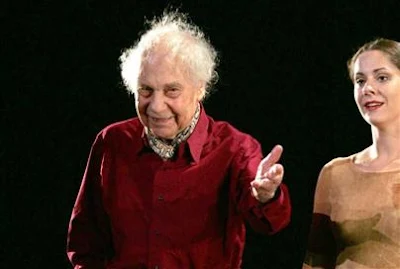 Sir Robert William "Bobby" Robson CBE [1] was an English footballer and, after retirement, manager of several European clubs and the England national football team.
Sir Robert William "Bobby" Robson CBE [1] was an English footballer and, after retirement, manager of several European clubs and the England national football team.(18 February 1933 – 31 July 2009)
His professional playing career as an inside-forward spanned nearly 20 years, during which he played for three clubs: Fulham, West Bromwich Albion, and, briefly, Vancouver. He also made 20 appearances for England, scoring four goals.
After his playing career he found success as both a club and international manager, winning league championships in both the Netherlands and Portugal, earning trophies in England and Spain, and taking England to the semi-final of the 1990 World Cup. His last management role was as a mentor to the manager of the Irish national football team.
Robson was created a Knight Bachelor in 2002, was inducted as a member of the English Football Hall of Fame in 2003, and was the honorary president of Ipswich Town. From 1991 onwards he suffered recurrent medical problems with cancer, and in March 2008, put his name and efforts into the Sir Bobby Robson Foundation, a cancer research charity. In August 2008, his lung cancer was confirmed to be terminal; he said: "My condition is described as static and has not altered since my last bout of chemotherapy...I am going to die sooner rather than later. But then everyone has to go sometime and I have enjoyed every minute". He died just under a year later.
Born in Sacriston, County Durham, Robson was the fourth of five sons of Philip and Lilian Robson (née Watt).[2] When he was a few months old, Robson's family moved to the nearby village of Langley Park where his father was a coal miner. As a boy, he was often taken by his father to watch Newcastle United at St James' Park, requiring a bus ride or a walk of several miles.[3][4][5] Robson describes Jackie Milburn and Len Shackleton as his childhood heroes.[4] Both played for Newcastle in the inside-forward position, the position Robson would later assume during his playing career.
Robson attended Waterhouses Secondary Modern School but the headmaster did not allow the school football team to join a league.[6] Instead, he began to play for Langley Park Juniors on Saturday mornings at the age of eleven, and by the time he was 15, he was representing the club at Under-18 level.[7] Robson played football whenever he possibly could but also worked as an electrician's apprentice for the National Coal Board in the Langley Park colliery.[8] In May 1950, Bill Dodgin, the Fulham manager made a personal visit to the Robson household to offer Bobby a professional contract. Despite being offered a contract by nearby Middlesbrough, the offer made by Dodgin was too attractive to turn down, so he signed for Fulham and moved to London,[9][10][11] playing as a wing-half and inside-forward.[12] Robson had also interested his beloved Newcastle, but he opted to join Fulham as, in his opinion, "Newcastle made no appreciable effort to secure [my] signature".[10]
Bobby Robson was awarded a number of honours for his contributions to football. In 1990, at the end of his eight-year reign as England manager, he was awarded a CBE and in 2002, he was knighted; both awards were for services to football.[135][136]
In 2002 (during his time as Newcastle manager), the 69-year-old Robson was awarded the freedom of Newcastle upon Tyne and the UEFA President's Award for 'services to football'.[11][20] He was inducted into the English Football Hall of Fame in 2003 in recognition of his impact as a manager.[137] Following his time as Newcastle United manager in 2005, Robson was made an Honorary Freeman of Newcastle,[105] which, in his autobiography, he described as being "the proudest moment of my life".[138]
Robson also won the 1992 Football Writers' Association Tribute Award for an outstanding contribution to the national game,[139] and the 2001 British Sports Writers' Association Pat Besford Trophy for Outstanding Achievement.[136] In 2005 he received a lifetime achievement award from the Sports Coach UK Awards,[140] and was also awarded the Eircom International Personality of the Year in 2006.[135] On 9 December 2007, Robson (74) was awarded the Lifetime Achievement Award at the BBC's Sports Personality of the Year show in recognition of "his contribution as both player and manager in a career spanning more than half a century".[141]
On 5 May 2008, during the 30th anniversary celebrations of Ipswich Town's 1978 FA Cup win, Robson was granted the Freedom of Ipswich by the Lady Mayor.[142] On 8 December 2008, he earned another such accolade when he was given the Freedom of the City of Durham.[143]
In March 2009, UEFA awarded Robson the Emerald UEFA Order of Merit award, awarded to "individuals who have dedicated their talents to the good of the game".[144] The award was presented to Sir Bobby at St James' Park on 26 July 2009, prior to the Sir Bobby Robson Trophy match, and just five days before his death. [145]













